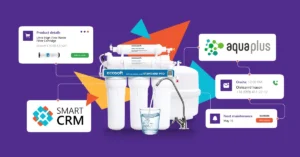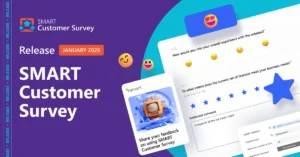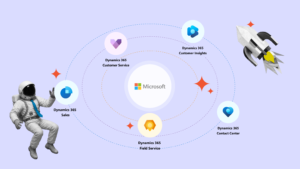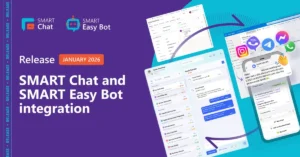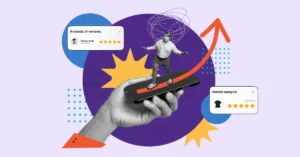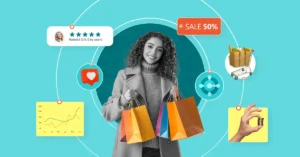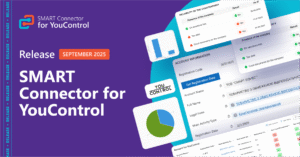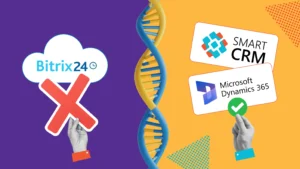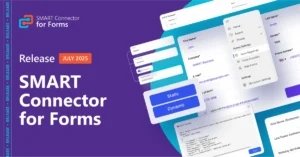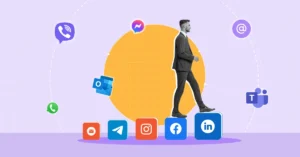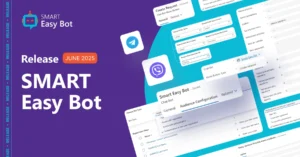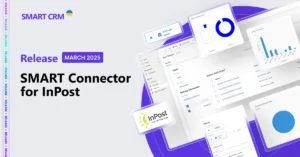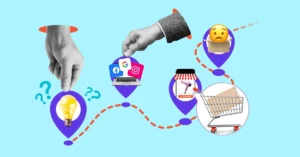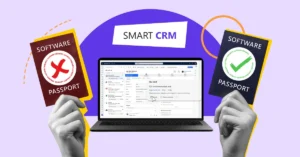How to Improve Customer Experience with Chatbots and Virtual Assistants

Customer-oriented service, since the start of the 2020s, has firmly shifted from being a “nice to have” to a “must-have” in the business value system. Why? Because consumers are no longer just looking to purchase products or services.
Increasingly, they expect unforgettable customer experiences from their favorite brands. According to Forbes research, in 2023, 58% of respondents were willing to switch trusted brands for the sake of a better customer service experience.
Businesses had to accept these new rules of the game because, according to McKinsey research, losing one loyal customer can only be offset by attracting three new ones.
This demand has spurred the active development of technologies that help improve the key elements of customer-oriented service:
- understanding customers,
- omnichannel communication,
- personalization of offers,
- automation of service processes.
With innovative solutions, it’s easier to stay connected with customers and partners 24/7, communicate through the most convenient channels, remember every detail of preferences, and never forget about personalized offers.
This is why CRM systems – software products for automating customer, consumer, and partner relationship management – have become bestsellers in the software market over the last decade.
And their extensions – various chatbots and virtual assistants – are essential components of good service.
Chatbots and Virtual Assistants: Differences and Areas of Responsibility
Chatbots and virtual assistants are digital tools used as extensions of classic CRM systems to automate user interactions.

A chatbot is a software product that facilitates user interaction through text or voice interfaces and follows a clearly defined script. It is designed to perform specific narrow tasks, such as registration or booking bots.
A virtual assistant is a multifunctional version of a chatbot, which may be enhanced with artificial intelligence. In this case, it understands context, takes past interactions into account, and continuously improves.
The difference between a chatbot and a virtual assistant lies in the depth of functionality and adaptability. Chatbots are best suited for basic tasks, while virtual assistants provide personalized, context-dependent support.
By the way, according to McKinsey’s research, the implementation of AI-based virtual assistants in the banking sector contributes to a 22-30% increase in employee productivity and leads to a 6% growth in annual revenue.
AI-Powered Technologies – A Revolution in the World of Bots
Generative Artificial Intelligence (GenAI) has the potential to completely revolutionize customer service. According to a study by McKinsey, incorporating GenAI into customer service, solely by reducing human hours during the handling of customer inquiries, boosts productivity by 30-45%.
However, it’s also important to consider the increased sales that come with improved customer satisfaction. This happens through:
- efficient automation of responses. GenAI-powered chatbots can independently engage in conversations, generating answers to common questions and even solving more complex issues without involving service staff,
- improved accuracy and relevance of responses. Thanks to natural language processing, GenAI can understand both the context and tone of the inquiry,
- faster processing of customer requests. GenAI’s ability to quickly analyze large amounts of data speeds up response times.
Common Use Cases for GenAI-Powered Virtual Assistants
SMART business, a company with over 15 years of experience in developing and implementing digital transformation solutions and creating AI-powered products, has compiled a list of the most common use cases for generative AI.
An AI chatbot for customer support and an AI assistant on the website provide high-quality customer support 24/7, even when your employees are off. They:
- quickly search the knowledge base and generate summary responses with links to documents,
- ensure high accuracy, even if the inquiry contains mistakes,
- find the required product, even if the user forgot the name but can provide related information.
AI Assistant for HR:
- automation of the recruitment process, including job description creation, resume screening, and candidate selection. This process is used by the renowned high-tech HR company Wonderlic,
- creating personalized learning programs,
- virtual L&D assistants and tutors,
- automation of upskilling and reskilling processes,
- assisting with onboarding new employees by answering questions based on HR documents and wikis. Employees without computers can access information via messaging apps like Telegram, Viber, or Facebook Messenger.
AI Assistant for Legal Departments: With significant potential to improve compliance and risk management, an AI assistant can:
- quickly identify inconsistencies in documents or risks that may affect business outcomes,
- monitor operations in real-time for compliance with regulatory standards and detect potential violations,
- predict risks based on historical data,
- check documents for alignment with company policies and identify those that need updating.
AI Assistant for Healthcare Institutions:
- assists in processing inquiries to the hotline,
- aids in diagnosing diseases. An interesting example is PathAI, which uses AI to analyze tissue samples for pathological conditions,
- accelerates the drug discovery process by analyzing billions of potential chemical compounds to identify promising ones in terms of research.
AI Assistant for Educational Institutions:
- automates communication with parents and students,
- creates personalized learning programs, such as the globally recognized language-learning platform Duolingo.
AI Assistant for Product Descriptions on Websites:
- automatically creates unique, high-quality product descriptions tailored to specific keywords,
- selects images for product cards in accordance with SEO requirements and optimizes them for fast loading and correct display on different devices,
- generates tags frequently used by users to search for similar products,
- performs SEO optimization for existing product cards, for example selects the most relevant keywords, creates titles, and meta descriptions that improve CTR (Click-Through Rate).
Customer Service Quality Assessment:
- transcribes and analyzes support team conversations with customers and evaluates them for professionalism, empathy, and adherence to company norms,
- provides recommendations for improving service levels when necessary.
Intelligent Social Listening (Online and Social Media Analysis) for companies planning rebranding, launching a new product, or exploring a new niche.
It not only counts mentions and hashtags but also deeply analyzes the context and tone. This allows for highly accurate predictions of market trends and the development of strategies that resonate with the target audience.
By creating personalized solutions in partnership with the SMART business team or choosing from ready-made options and integrating them into business processes, companies can enhance a wide range of functions.
Want to understand which business processes in your company benefit most from an AI assistant? Request a free consultation here.
Opportunities for Creating a Unique Customer Experience by SMART business
Having seen how significantly AI-based solutions can boost profitability, businesses today no longer ask “Is it worth it?” but rather “Where do we start?” Successful cases show that it starts with reviewing needs and choosing the right vendor.
For instance, global retail giant Walmart partnered with Microsoft to implement a range of generative AI-based solutions. This collaboration elevated customer experience for consumers across 11 countries.
The company’s top management emphasized access to the most advanced AI models, combined with high data security, as key reasons for choosing this partnership.
SMART business, a leading Microsoft partner, offers the full spectrum of solutions from the vendor.
Specifically, SMART CRM provides all the necessary tools to build effective interactions with customers and partners.
SMART Chat and SMART Easy Bot have been developed as extensions of the platform’s capabilities:
SMART Chat is a tool that:
- integrates popular messaging apps (Facebook Messenger, Telegram, WhatsApp, Viber, Instagram) into a single window,
- records conversations and key metrics (such as wait times and communication duration) and integrates communication history for a personalized experience,
- optimizes each subsequent interaction with the customer by saving communication history in the customer’s profile, enabling personalized communication.
Learn more here.
SMART Easy Bot is a tool for simple and convenient management of Viber and Telegram chatbots directly from the CRM interface.
Unlike SMART Chat, which facilitates omnichannel communication, SMART Easy Bot can also be used for self-service by customers who have subscribed to the bot.
Key features include:
- building a client base with verified contacts,
- sending bulk or segmented messages,
- supporting feedback,
- generating unique texts directly from CRM,
- converting texts into barcodes or QR codes as needed.
This tool supports various scenarios, such as purchases or service maintenance. Learn more here.
How SMART business Chatbots Help Build Trust-Based Relationships with Consumers
The value of these solutions for businesses is evidenced by successful implementations with our customers.
For example, LEOLAND, a sports and entertainment complex in Lviv, is a unique project spanning 30,000 square meters with numerous family-friendly locations. It attracts many visitors daily, each of whom deserves to feel special, which implies being informed about changes in operating hours, the availability of certain areas, or new personal offers. Additionally, visitors expect immediate responses to their inquiries, regardless of the complex’s operating hours.
The SMART business team received a request from LEOLAND for an upgrade to their IT ecosystem.
The result was the implementation of Microsoft Dynamics 365, integrated with several connectors, including SMART Connector for Binotel, SMART Chat, SMART Easy Bot, SMART Connector for eSputnik, and SMART Connector for GMS.
The system enables seamless communication with visitors through their preferred channels, records and analyzes inquiries to the customer center, and automatically analyzes preferences to generate personalized offers.
Despite opening amid the war, LEOLAND quickly became a popular family destination for locals and visitors alike.
SMART business solutions ensure efficient business process automation with flexible customization, rapid implementation, and user-friendly interfaces. They also comply with the highest international standards, particularly regarding data protection.
Implementing any toolset on the SMART CRM platform guarantees:
- improved customer interactions,
- increased operational efficiency,
- enhanced precision in decision-making processes,
- increased security of information systems.
Order a free consultation here.
